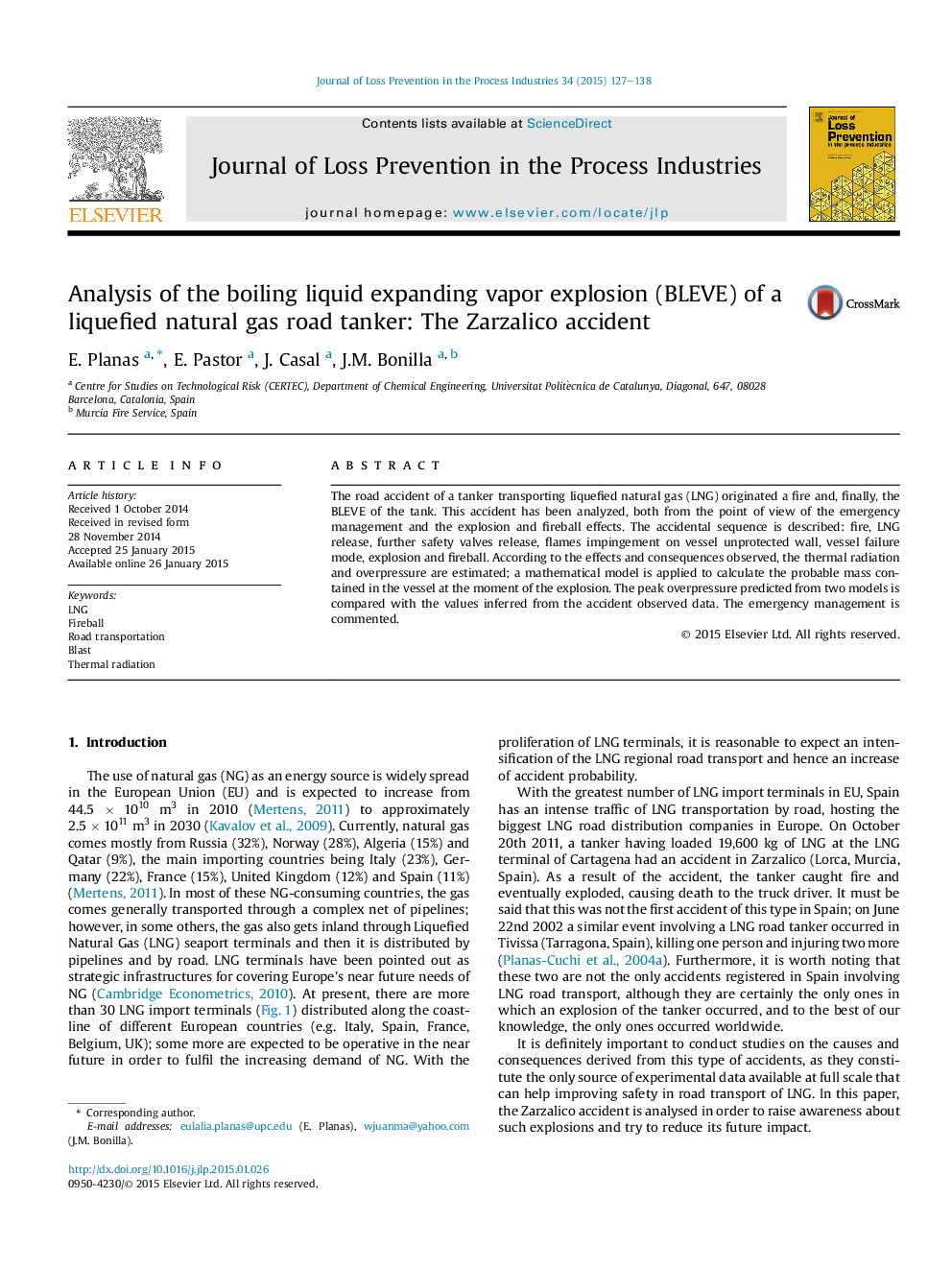| Article ID | Journal | Published Year | Pages | File Type |
|---|---|---|---|---|
| 586001 | Journal of Loss Prevention in the Process Industries | 2015 | 12 Pages |
•Road transportation of LNG is increasing, this implying a certain risk.•The BLEVE of an LNG road tanker –a rather unusual accident– is analyzed.•The effects of explosion and fireball are estimated from the observed consequences.•The correct emergency management avoided further damage to people.
The road accident of a tanker transporting liquefied natural gas (LNG) originated a fire and, finally, the BLEVE of the tank. This accident has been analyzed, both from the point of view of the emergency management and the explosion and fireball effects. The accidental sequence is described: fire, LNG release, further safety valves release, flames impingement on vessel unprotected wall, vessel failure mode, explosion and fireball. According to the effects and consequences observed, the thermal radiation and overpressure are estimated; a mathematical model is applied to calculate the probable mass contained in the vessel at the moment of the explosion. The peak overpressure predicted from two models is compared with the values inferred from the accident observed data. The emergency management is commented.
